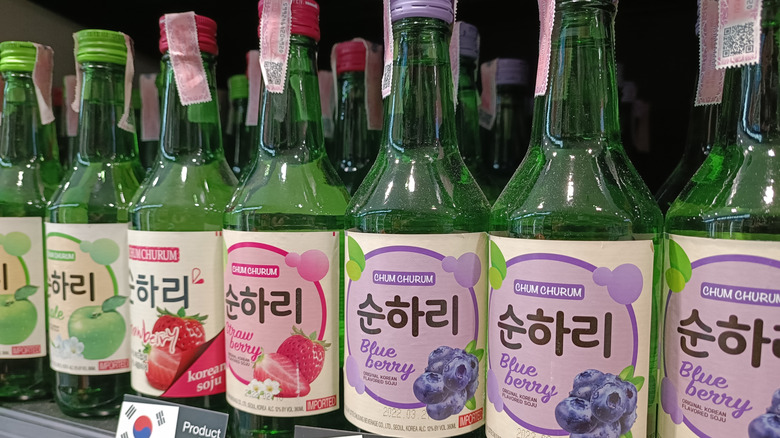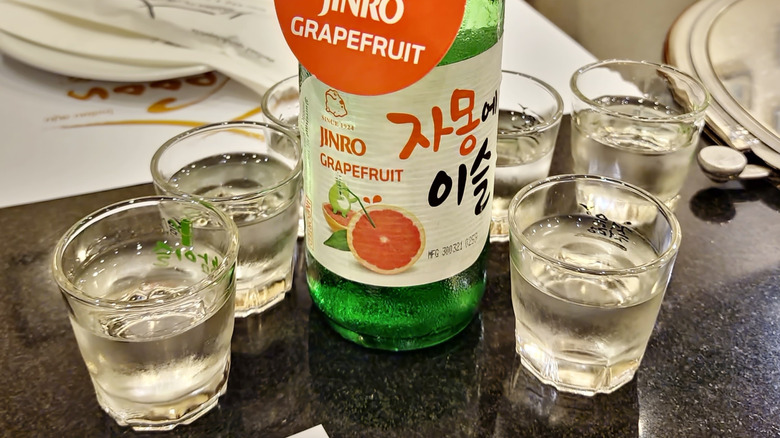What You Need To Know About Flavored Soju
Soju is a traditional Korean spirit (or sool) with a globally growing market. The clear, distilled liquor can range in alcohol content from 16-40%, although it's most typically around 20%. Flavored soju, often sweet and fruity, has gained popularity on an international scale, attracting those who find the drink in its traditional form too strong in taste. The sweet soju also has a lower alcohol content, making it even more accessible to consumers.
In South Korea, soju is typically enjoyed alongside traditional Korean dishes from barbequed intestines known as gopchang to budae jjigae, an army stew that originated during the Korean War. Soju itself is centuries old, but flavored sojus didn't appear until 2015. The brand Soonhari (owned by the Korean conglomerate Lotte) catapulted the flavored soju trend, introducing grapefruit, grape, peach, and more.
Julia Mellor, sool specialist and founder of The Sool Company, shared with Mashed, "Flavored soju can be considered like 'pink gin' or canned cocktails and is not a spirit category." She adds that while flavored soju is enjoyable for many, these varieties don't retain the essence of the spirit, but notes, "I would say the flavors of soju are just personal preference of the drinker."
Fruit soju is a global hit
Although fruit-infused soju gained significant popularity in South Korea following its introduction in 2015, that initial surge has since waned. However, it played a pivotal role in sparking global interest, bringing soju to countries like Vietnam, the Philippines, and the U.S.
Julia Mellor explains, "Western drinking culture often does not require food, and the drinks are enjoyed on their own, which is what makes the flavored soju so appealing to an international market. However, in Korea, they simply don't match well with Korean food and are far less popular." Fruit-forward flavors clash with the savory and spicy profile of Korean meals. Yet a sweet strawberry or grapefruit soju can be tasty as a standalone beverage or in mixed drinks, reflecting differences in drinking cultures and the craft cocktail trends of 2024.
Although there is little data on what fruit flavors are most popular in which countries, Mellor tells us, "Global tastes vary from region to region, so some flavors enjoy more popularity than others depending on where they are sold." The leading soju brand both in South Korea and globally is Jinro Chamisul. Jinro's Fresh flavor (aka unflavored) may be its most popular product (likely thanks to the Korean market), but green grape comes out on top among its fruit options.

